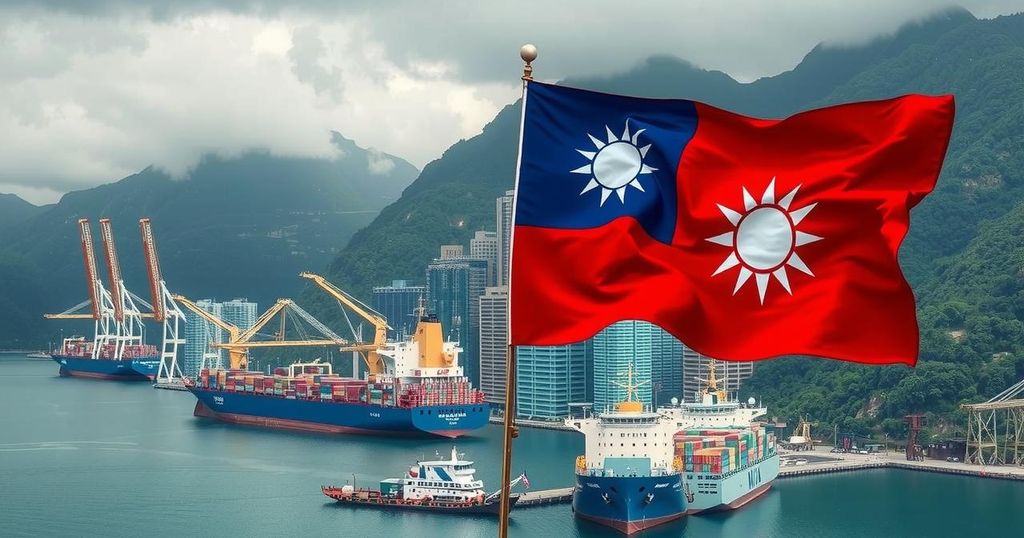Politics
ASIA, BEIJING, BOEING, BOEING DEFENSE, BOEING DEFENSE, SPACE & SECURITY, CHINA, CHINESE, COMMERCE MINISTRY, DEFENSE, FOREIGN MINISTRY, GENERAL DYNAMICS, GEOPOLITICS, INDIA, INS, INSITU, JOE BIDEN, LADAKH, LAI CHING - TE, LOCKHEED MARTIN, LOCKHEED MARTIN CORPORATION, MEXICO, MINISTRY OF COMMERCE, NORTH AMERICA, OF COMMERCE, RAYTHEON, SOUTH CHINA SEA, SPACE & SECURITY, TAIWAN, TERRITORIAL DISPUTES, UNITED STATES, US, US-CHINA RELATIONS, WASHINGTON, XI JINPING
Clara Montgomery
China Imposes Sanctions on U.S. Defense Firms Over Taiwan Arms Sales
China has imposed sanctions on ten U.S. defense companies over arms sales to Taiwan, marking its second set of penalties in a week. This includes companies like Lockheed Martin and Raytheon, which have been barred from import/export activities in China. The sanctions reflect ongoing tensions surrounding Taiwan, which China views as a part of its territory, and U.S. military support for the island.
China has recently taken punitive measures against ten American defense firms in response to their involvement in arms sales to Taiwan, marking its second wave of sanctions in under a week. This move, announced by China’s Ministry of Commerce, specifically targets subsidiaries of major corporations such as Lockheed Martin, General Dynamics, and Raytheon, which have been added to the country’s “Unreliable Entities List.” These companies will face restrictions on their import and export operations and their senior executives will be barred from entering China. Previously, on Friday, seven military-industrial companies, including a subsidiary of Boeing, were similarly sanctioned for their military assistance to Taiwan.
The relationship between the United States and Taiwan is a sensitive topic, as China views Taiwan as a part of its territory and is unwilling to dismiss the use of force to assert control. Washington maintains a strategic alliance with Taiwan, providing extensive military support despite not formally recognizing the island’s sovereignty. Recently, the Biden administration committed $571.3 million in defense assistance to Taiwan, further exacerbating tensions with Beijing.
It is important to note that these sanctions not only impact the mentioned defense firms but also have implications for U.S.-China relations as China intensifies its military pressure on Taiwan. Since the election of President Lai Ching-te, China has conducted several significant military exercises in the region. In addition to the sanctions, China’s commerce ministry has included 28 other U.S. entities, primarily defense firms, in its Export Control List, thus prohibiting the export of dual-use items to them. This latest action signals China’s determination to protect its perceived national security interests and uphold its international obligations, particularly to prevent the proliferation of military technologies.
The tensions between China and Taiwan have historical and geopolitical roots, with China asserting its claim over Taiwan, which it considers a breakaway province. The United States, while not formally recognizing Taiwan, has established a robust informal relationship with the island, including military support and arms sales under the Taiwan Relations Act. This relationship has become increasingly contentious, particularly as U.S. defense commitments have grown, prompting China to respond with measures perceived as part of its strategic interests in the region. Recent escalations, characterized by military drills and economic sanctions, underscore the volatility of cross-strait relations and the broader implications for U.S.-China ties.
In summary, China’s recent sanctions against U.S. defense firms signify its strong opposition to arms sales to Taiwan and highlight the escalating tensions between Beijing and Washington over this sensitive geopolitical issue. The continued military support from the U.S. to Taiwan, coupled with China’s stringent responses, suggests a likely trend of heightened confrontations in the region. As the situation develops, it will be vital to observe the repercussions of these actions on international diplomatic relations and regional stability.
Original Source: www.hindustantimes.com








Post Comment